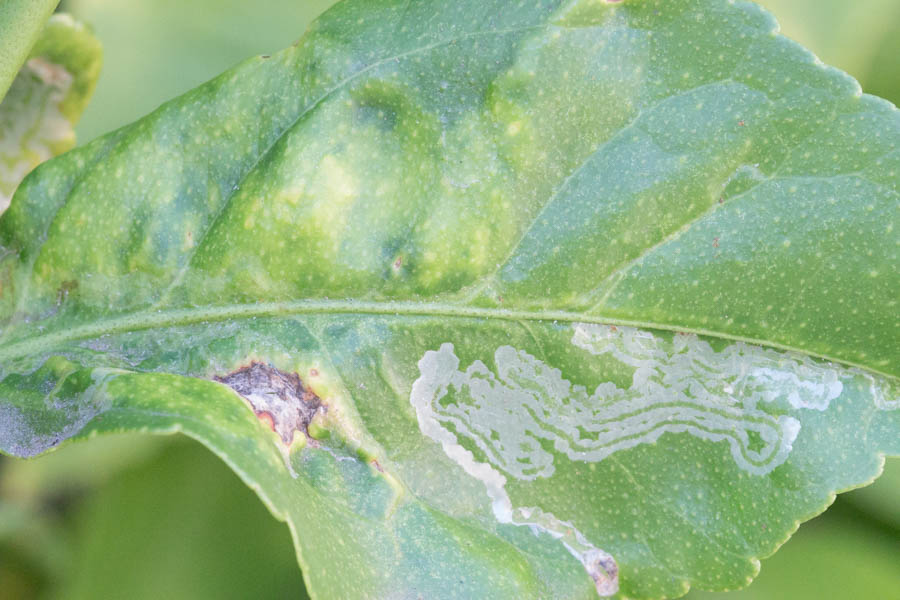Citrus Leafminer: Serious Pest or Aesthetic Irritation?

GardenZeus earns commissions on sales made through links in this article. There is no additional cost to you.
Citrus leafminer is a tiny moth whose larvae tunnel between the upper and lower surfaces of new leaves of citrus and closely related trees. The citrus leafminer infests most of Southern California as well as coastal California north to San Luis Obispo and inland to the San Joaquin Valley. Citrus leafminers have four stages: egg, larva, pupa and adult. It is the larvae that live inside the leaves, leaving the telltale frass, or feces, inside the meandering white mines under the surface. As the larvae becomes adults, they move to the edge of the leaves and create the rolled and distorted appearance. Larvae are only able to live in the tender, young, new leaves. Leaves damaged by leafminers may offend our aesthetic or be unattractive, but generally do not significantly affect growth or fruiting on established and mature trees. Leafminers are unable to infest mature, older leaves. Cutting most or all infested stems or branches may encourage ongoing infestation as this encourages new growth from the tree and therefore more new, young leaves as food for the pests. To minimize infestations, reduce pruning and refrain from cutting damaged foliage. The natural enemies of the citrus leafminer feed on the larvae in the mines and reduce their population. Do not attempt to control this pest with insecticides on mature trees.
Traps baited with a pheromone (insect sex attractant) can be used to detect the presence of leafminers, but are not effective in controlling their population, as the traps do not capture enough of the population to be effective.
Citrus leafminer can be a more serious pest on young and establishing trees, as leaf damage can significantly slow growth. Encourage living soil, fertilize appropriately, and otherwise meet the cultural needs of young trees. Avoid repeatedly removing citrus leaves, which may weaken young trees. As a last resort, consider an insecticide applied to coincide with the growth of new leaves in the spring.
Citrus leafminers generally disrupt composure and cause emotional distress to humans more than they disrupt trees. GardenZeus expert Darren Butler believes that the best treatment for the citrus leafminer in home gardens and landscapes is usually pest acceptance. Citrus leafminers require us to reevaluate our sometimes-unhelpful human perspective on plant health and appearance. Many management practices, including application of toxic chemicals or repeated/obsessive trimming of infested stems, may lead to larger health concerns for humans and trees, or encourage ongoing infestations. Think of meditation as the new pesticide, the cure for human emotions that may harm your tree, especially for insects that cause more distress to people than they do to their plant hosts. Leafminer infestation of citrus will probably not go away in our lifetimes. Consider daily meditative staring at a citrus leaf full of leafminer tunnels, for as long as it takes to see the beauty, find acceptance, and know peace.
GardenZeus has customized gardening information by plant and zip code. To get started, enter your zip code
Other articles relating to problems, pests and diseases of citrus: